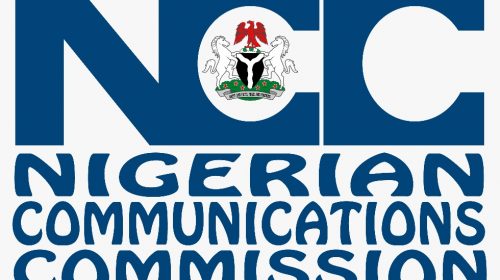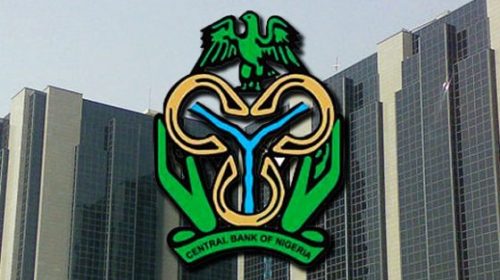REMARKS BY LAMIDO YUGUDA, DIRECTOR GENERAL, SEC NIGERIA AT JOURNALIST ACADEMY IN LAGOS

• Good Morning, Esteemed Guests and Participants.
• A warm welcome to this Journalist Academy being organized this November 2023, by the Nigerian Capital Market Institute (NCMI).
• We are thrilled to have you join us today as we embark on this enlightening journey through the intricacies of the capital market.
• On behalf of the Securities and Exchange Commission (SEC), I wish to extend our heartfelt appreciation to the dedicated journalists who play an instrumental role in the capital market’s progress.
• Journalists hold a pivotal position in the capital market, informing, educating, and guiding. You provide investors with timely and precise information on market trends, financial instruments, and corporate performance, thereby empowering informed investment choices.
• The role of journalists in promoting market transparency, accountability, and integrity cannot be overstated. Your efforts educate investors, simplify complex financial concepts, promote good corporate governance and enhance market confidence.
• Moreover, journalists boost market efficiency by swiftly disseminating information, aiding in risk assessment, and exposing fraudulent activities. Your impact on public perception and market sentiment is significant, fostering a safer and more equitable market, benefiting investors and the wider economy.
• In today’s world, where the financial sector plays a pivotal role in the global economy, journalists act as the vital bridge between the market and the public. You are responsible for conveying critical information, demystifying intricate ideas, and highlighting pivotal developments within the capital market. This training program aims to elevate your capacity to perform this role effectively.
• The Commission, in further recognition of the unique role and power of the media in presenting various views on facts which may promote hope, or despair for stakeholders in the capital market, sees the needs to provide a sustained platform for strengthening the capacity of journalists and fostering a balanced view of facts. This need, and our constant engagements with several journalist associations forms the basis for this journalist academy which has brought us together.
• Over the next two days, this program will offer you an opportunity to delve into the core workings, regulations, and innovations that shape the financial sector, particularly the capital market. Our primary goal is to equip you with the knowledge and skills needed to accurately and effectively report on these critical aspects.
• May I use also use this opportunity to make a few points about the SEC and the Nigerian capital market.
• The capital market plays a pivotal role in the economic growth and development of a nation. It is a veritable source of financing for wealth creation and infrastructural development. Its role of connecting capital to ideas is the foundation on which development occurs. The more efficient this connection is, the faster development occurs and the better the lives of the people of the country would be.
• The role of the SEC is to develop and regulate this market, making it fair and safe for issuers, intermediaries, and investors. To do this, the Commission makes rules and regulations that guide the market. It also supports product and market development, guiding innovation in the market.
• Over the past four years, the Commission has done a lot to improve the Nigerian capital market, leading to reasonable success and increasing the size and depth of the market. Permit me to mention a few of these.
• To achieve anything, one must have a well-structured plan leading to such achievement. The SEC has a 10year Capital Market Master Plan (CMMP) which is targeted at taking the market to the desired destination by 2025. Given that it is a dynamic market, however, by the halfway mark in 2020, certain assumptions and situations had changed. The Commission successfully revised the CMMP to reflect current realities and adjusted the plan to suit the desired future of state of the capital market.
• To strengthen its ability to carry out its mandate, and to have enabling laws that support its activities in today’s dynamic markets, the Commission embarked on amendment of the Investments and Securities Act (2007). The Investments and Securities Bill (2023) is presently at the National Assembly and we appeal for speedy passage of the Bill to enable us position our market better for the economic growth of our dear country, Nigeria.
• The Commission conducted an institutional capacity assessment and discovered gaps in capacity to carry out our functions at the highest levels of efficiency and effectiveness. To plug these gaps, we have implemented a robust HR restructuring exercise and embarked on a HR Transformation program that will modernize the HR policies and procedure of the Commission. This will create an effective regime of highly talented, motivated, youthful and skilled workforce to further raise its regulatory capacity and effectiveness.
• In furtherance of this objective of improving capacity, the Commission is making efforts towards digitizing and modernizing the market. It’s undeniable that effective market regulation can greatly benefit from the use of up to date technologies. With this goal in mind, the Commission is in the process of rolling out best-in-class technology in terms of infrastructure and solutions.
• Collaborating with the Central Bank, the African Development Bank, and the Financial Sector Deepening Africa, the Commission has made significant progress in the following areas:
o Launching a co-location hosting regime for its data centres. These data centers will house the Hyper Convergence Infrastructure, which will serve as the foundation for the Commission’s solutions.
o Establishing robust connectivity through two dependable service providers to ensure uninterrupted availability.
o Implementing a sophisticated surveillance system to enhance precise market regulation.
o Introducing a user-friendly electronic registration and returns analysis solution that provides market operators with a simple yet comprehensive interface for compliance reporting.
• In addition to these, the Commission is also advancing its plans to introduce internal solutions that align with its mission of effective market regulation.
• To manage risk and entrench trust in collective investment schemes(CIS), the Commission mandated that all CIS funds be held in custody. This has helped the growth of these funds from about N1.1 trillion at the beginning of 2020 to about N2.1 trillion at the end of October 2023. We continue to encourage investors, especially those on the retail end, to approach the market through these CIS funds, as they provide investors with the opportunity to have their investments managed by knowledgeable investment professionals.
• To help solve the perennial problem of unclaimed dividends, the Capital Market Committee, under the leadership of the Commission, has embarked on the creation of a new e-dividend portal, which is expected to become operational on the 30th of November 2023. Once operational, this portal will simplify the process of mandating accounts for e-dividend. This will improve efficiency and ultimately leading to a significant fall in unclaimed dividends.
• In furtherance of its efforts to ensure that new dividends do not become unclaimed, the Commission is presently supporting work on an identity management system that would ensure that investors and market participants are properly identified so as to forestall the problems that led to accumulation of unclaimed dividends.
• In line with the Commission’s developmental role, the zonal offices continue to conduct investor clinics. These clinics provide solutions to investors dealing with issues relating to their investments in the capital market. They also serve as good platforms for investor education and awareness. The clinics also support the financial inclusion efforts of the Commission.
• Over the past four years, the Commission has worked hard to expand and deepen the market through the creation of new products and the expansion of existing ones. Two central counterparties (CCPs) were registered and over 30 derivatives contracts approved to kick-start derivatives trading in Nigeria. Over the period, the Exchange Traded Funds (ETFs) market has grown from nothing to about from about N18 billion today.
• The non-interest capital markets segment is growing, and we continue to witness successful sukuk issuances. The green and blue bond markets are also beginning to see some activity.
• The Commodities market is also growing in leaps and bounds. The Commission has registered five commodities exchanges and supported their growth. It also supported the on-going revamp of the Nigerian Commodities Exchange (NCX) by the Central Bank of Nigeria.
• Today we have three strong multi-product exchanges driving the growth of our market. This is good, as healthy competition spurs innovation and growth. The activities of these exchanges have helped us make marked advances in product and market development.
• I am happy to tell you that the Nigerian stock market has reached a new all-time high, with the NGX All-share Index crossing the 70,000-point mark on 1st November, 2023. This represents a more than 30 percent increase this year. The consistent growth of the market is testament to the hard work put in by the entire market, led by the Commission.
• Over the past four years, we have had tens of issuances – equities and bonds. In 2023, we have had a total of nineteen (19) new issuances valued at ₦338.39 billion. The Commission has also reviewed and approved 11 mergers and acquisitions this year.
• On its investor protection mandate, the Commission also continued its efforts to educate shareholders and the public about capital market operations through media channels. At the weekly enlightenment programs, discussions primarily focused on providing an overview of the Nigerian Capital Market and highlighting the consequences of engaging with ponzi scheme operators. The Commission has also issued several warnings about Ponzi schemes and digital assets not registered with the Commission.
• The Commission continues to collaborate with other securities commissions in Africa and beyond to better the lot of the Nigerian Capital Market. The SEC is a member of the International Organization of Securities Commissions (IOSCO) and its organs – African and Middle East Regional Committee (AMERC) and the Growth and Emerging Markets Committee (GEMC). The Commission presently chairs the West African Securities Regulators Association (WASRA) and few weeks ago, helped organize the 3rd West African Capital Market Conference (WACMaC) in Lagos.
• Themed “Infrastructure Deficit and Sustainable Financing in an integrated West Africa Capital Market”, WACMaC 2023 provided a unique platform to engage in meaningful discussions, share insights and forge partnerships that will help shape the future of our capital markets.
• The Commission is also a member of the Islamic Finance Standards Board, helping craft standards that support the noninterest segment of the capital market.
• To help protect the planet we all call home, the Commission supports sustainable finance practices. The International Sustainability Standards Board (ISSB) Standards Adoption Readiness Work Group which comprises all regulators, preparers, the academia, and exchanges has developed an Implementation roadmap for ISSB standards which will be unveiled soon. Nigeria, as a nation, has opted for early adoption of the standards with reporting period of 31st December, 2023 for the early adopters. The Commission, in concert with other stakeholders, is assiduously working towards seamless implementation of the standards and will leverage its membership of IOSCO to build the capacity of the capital market.
• Sometimes, certain businesses who would like to access the capital market for financing are not able to. This is why we continue to support the NASD, the exchange for unlisted securities. We also support the NGX’s technology board which aims to present a viable financing opportunity for fintechs and technology companies who would otherwise find it difficult to meet regular listing requirements.
• May I, at this juncture, let you know that the Commission sees fintech and the technology sector as a growth area for our market and economy. We also see it as an opportunity to direct the interest of young people to the capital. To us the greying demographic of investors in the capital market is unacceptable and we will do what it takes to make the market attractive to youths.
• We presently have a policy of supporting fintechs to be part of the capital market. To guide them, the Commission created a fintech and innovation office whose mandate is to handhold such companies as they navigate regulations towards becoming capital market operators. We have also set up a regulatory incubation programme to enable these companies test out their services in a safe environment as they get on-boarded into the market.
• The SEC continues to warn investors and the public about cryptocurrencies and digital assets such as contracts for differences, and fx trades that are not licensed by CBN or the Commission. Since they are unregulated, the investing public has no protection when they invest in them. The Commission and other regulators continue to work to find the best way to handle these assets and their proliferation in our market.
• At this point, let me say that the capital market remains one of the most viable vehicles for wealth creation. As such, we invite institutions and individuals to invest in the market, assuring them of proper regulation and fair practices. Given the macroeconomic challenges the nation has had in recent times, the capital market offers diversification opportunities.
• The SEC supports the economic growth of the country and the renewed hope agenda of the present leadership. We see our role as helping attract foreign investment into the country to help ease the fx liquidity challenges we have which are presently having a negative impact on the value of our dear currency, the naira. Proper regulation, good market conduct, and efficient market practices will make our market attractive. We strive for these.
• It is common knowledge that our nation has a huge infrastructure deficit. It is also obvious that this deficit cannot be bridged using the national budget. It is our belief that the only viable source of financing this deficit is private capital through the capital market. This is why we are doing our best to put the necessary factors in place for infrastructure financing. In collaboration with FSS2020 of CBN, we have prepared a securitization bill that will support an asset-backed bond market to address both commercial and residential real estate needs of the country. We also have certain provisions on the Investments and Securities Bill 2023 presently before the National Assembly that would help support the capital market in its quest to be the solution provider to our infrastructure needs.
• Going forward, the Commission has a few targets it would like to reach. One is to fulfil its assigned presidential targets. We take these targets seriously and would like to assure the government that we would meet and even surpass these targets. We have also set for ourselves the target of improving the market capitalization to GDP ratio. Presently at about 30 percent, we target 50 percent over the next three years.
• To achieve these targets, the Commission will continue to evolve and re-invent itself to respond appropriately to the dynamic environment that is the market. In doing this, the Commission will always have the ultimate goal in mind – to improve the standard of living of the Nigerian people.
• Over the next couple of days, our esteemed faculty, experts in their respective fields, will guide you through these topics, ensuring you gain a good understanding of the market and how it does what it does.
• You will gain insights into the core operations, explore the intricacies of public offerings, crowdfunding, compliance, fintech modalities, and much more. You will be informed about Anti-Money Laundering (AML) and Countering the Financing of Terrorism (CFT).
• Furthermore, you will gain insights into the role of fintech in the financial market and the capital market, and how it continues to shape the industry.
• The knowledge you acquire during this program will not only enhance your reporting skills but also contribute to raising awareness and understanding of the capital market among the public. We trust that you will find this experience both enlightening and engaging.
• Once again, I extend our warm welcome and encourage you to make the most of this training.
• Thank you for your active participation, and we eagerly anticipate two days of insightful discussions and knowledge sharing.
• Ladies and gentlemen, I assure you of the Commission’s unwavering support, engagement, and collaboration, as these are integral to achieving sustainable growth for our market and our nation.
• Thank you
Lamido Yuguda
Director General







Leave a Reply